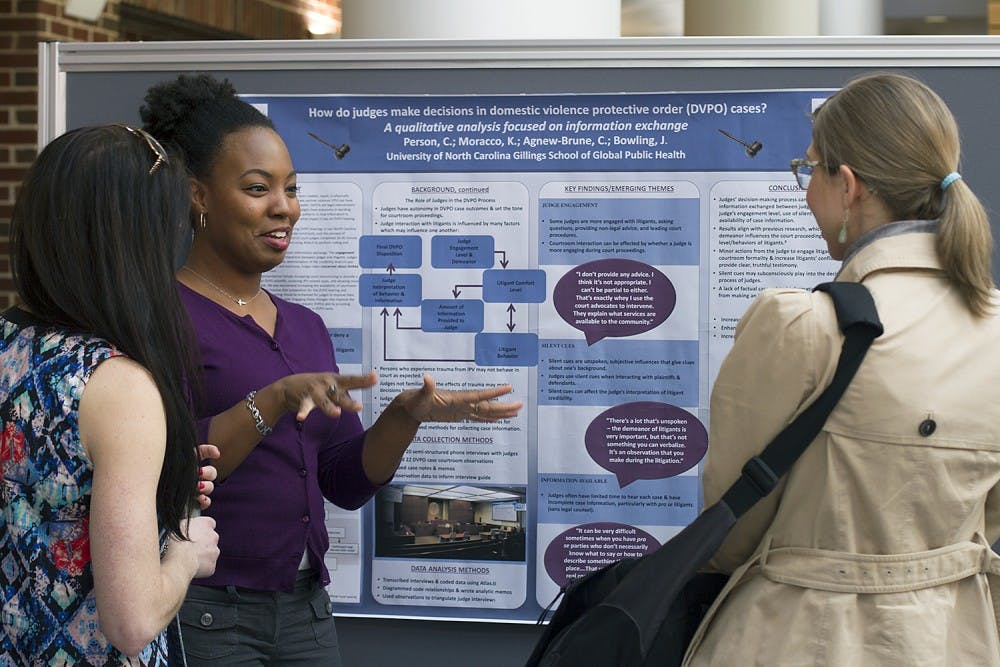“The University has a set of tools that you can’t access from the community,” said aid Christi Hurt, assistant vice chancellor for Student Affairs.
Hurt described tools like the University’s ability to expel students, change a student’s housing situation if he or she no longer feels safe and shift a student’s classes or exams.
Hurt also spoke about the changes in the University’s sexual assault policy.
“One thing that’s very important is that no matter who someone reports to — whether it’s a (resident adviser), the Women’s Center, or a Title IX officer — is that they get the same range of options,” Hurt said.
She said she is frequently asked what the law needs to be regarding sexual violence.
“It’s already illegal to rape people and that’s pretty clear,” she said. “I don’t think there’s a legal solution in terms of changing laws, but there’s a lot we can do to respond.”
Professor Sandra Martin, associate dean for research at the Gillings School of Global Public Health, spoke about risk factors for both sexual assailants and victims.
Alcohol use, particularly binge drinking, is a risk factor for both assailants and victims.



